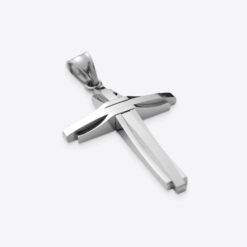Proverbs 13:24 offers valuable insights into the role of discipline in parenting. This article will delve into the context of this proverb, identifying the father figure and exploring the comparison between hate and love in discipline.
We will also discuss the interpretation of the “rod” as a tool for discipline, the importance of not provoking children, and the significance of teaching them God’s word.
By the end, we will reflect on different parenting approaches and the effects of discipline on children. Dive in to uncover the wisdom of Proverbs 13:24 and enhance your parenting skills.
Key Takeaways to The Role of Discipline in Parenting:
- Discipline in parenting is not synonymous with punishment but with teaching and guidance.
- The “rod” in the proverb symbolizes proactive and consistent discipline, not physical abuse or harsh punishment.
- Parental discipline, when done with love and care, can ultimately lead to a child’s spiritual growth and development.
Anchor Bible Verse
He who spares his rod hates his son,
– Proverbs 13:24 (NKJV)
But he who loves him disciplines him promptly.
Understanding Proverbs 13:24
In understanding Proverbs 13:24, we delve into the profound wisdom of the Bible regarding parental discipline and love towards children, as expressed through metaphorical language.
Proverbs 13:24 portrays the relationship between parents and children as a fundamental aspect of the teaching and learning process.
The metaphorical use of ‘spare the rod, spoil the child’ conveys the idea of necessary discipline intertwined with genuine care and training. This verse emphasizes that disciplining children is an act of love, guiding them toward moral development and proper behavior.

It provides insights into the Old Testament’s perspective on discipline, advocating for a balance between correction and affection in nurturing the next generation.
Context of Proverbs 13:24
The context of Proverbs 13:24 offers valuable insights into the role of discipline and parental guidance in shaping the character and behavior of children according to the wisdom of Scripture.
Proverbs, being a collection of practical teachings and advice, emphasizes the significance of instilling discipline in children from an early age. It underscores that proper training and correction are essential components in the formation of a child’s moral compass and societal conduct.
Parental guidance, as depicted in Proverbs 13:24, serves as a compass steering children towards a virtuous path by inculcating values, respect, and responsibility.
The verse underscores the importance of a firm yet nurturing approach, aligning with the overarching theme of parental involvement and guidance found throughout the wisdom literature of the Bible.
Identification of the Father in the Proverb
The identification of the father figure in Proverbs 13:24 symbolizes the authority and responsibility of parental discipline, showcasing the balance between love and correction in dealing with a rebellious son.
Within this context, the father becomes a mirror to reflect the crucial facets of a nurturing yet firm parental role.
His actions speak volumes about the intertwined notions of love and wisdom in guiding the wayward child toward righteousness. The father’s approach to discipline embodies a deeper sense of care and understanding, steering the rebel son away from destructive paths and toward a path of wisdom.
The metaphorical representation of the rebel son underscores the resilience of parental love and the transformative power of wisdom in shaping a child’s character.”
Comparison of Hate and Love in the Proverb
The comparison between hate and love in Proverbs 13:24 serves as a poignant reminder of the transformative power of discipline expressed through metaphorical language in biblical verses.
In this verse, the juxtaposition of hate and love illustrates how discipline can be perceived in different lights.
While hate in this context implies a stern correction or rebuke, love embodies a nurturing and guiding principle. It signifies the delicate balance required in discipline, where correction is not just about punishment but about shaping character.
The metaphorical depth reveals that discipline rooted in love is a form of investment in a child’s future,
Significance of Love in Seeking Discipline
The emphasis on love in seeking discipline in Proverbs 13:24 underscores the importance of nurturing obedience, respect, and responsibility in children through a foundation of love and guidance.
Love, as the cornerstone of parenting, provides a nurturing environment that enables children to understand the virtues of obedience and respect. By blending discipline with training, parents can instill a sense of responsibility in their children, guiding them towards correction and obedience.
When parents discipline with love, children are more likely to respond positively, internalizing the lessons being taught and growing into respectful, responsible individuals.
This approach not only sets boundaries but also helps cultivate strong relationships based on mutual respect and understanding.
Interpretation of Proverbs 13:24
Interpreting Proverbs 13:24 involves understanding the metaphorical use of the ‘rod‘ as a symbol of parental authority and discipline, reflecting God’s loving chastening and guidance towards His children.
The concept of the ‘rod’ in this context goes beyond a physical object used for spanking; it embodies the idea of the parent’s role as an authority figure responsible for guiding and correcting their children.
Just as God disciplines His children out of love and for their benefit, parents are called to discipline their children with love and intentionality, shaping their character and instilling values.
The ‘rod’ signifies not just punishment but also a form of guidance towards righteousness and maturity, emphasizing the importance of a balanced approach that combines authority and affection in parenting.
Meaning of ‘Rod’ in the Context of Discipline
Exploring the meaning of the ‘rod’ in the context of discipline delves into the metaphorical representation of parental correction in the Old Testament, emphasizing the disciplinary aspect of guidance and training.
In Proverbs 13:24, the ‘rod’ holds immense significance as it symbolizes the role of discipline and correction in the upbringing of children.
The use of the ‘rod’ does not solely imply physical punishment but rather signifies the guidance and training provided by parents to instill values and morals in their children.
Throughout the Old Testament, the ‘rod’ serves as a metaphor for parental authority and responsibility in shaping the character and behavior of the younger generation, emphasizing the importance of discipline in fostering a strong foundation for children.
Understanding the Phrase ‘Spare the Rod’
Understanding the phrase ‘spare the rod’ in the context of discipline addresses the consequences of neglecting parental responsibility, highlighting the importance of discipline and correction in child rearing according to Old Testament teachings.
In Proverbs 13:24, the biblical wisdom warns against leniency in discipline, suggesting that without correction, a child may go astray.
The concept of ‘spare the rod’ conveys the idea that discipline, even in the form of punishment like spanking, is crucial for a child’s moral and behavioral development.
The Old Testament places a significant emphasis on the role of parents in guiding, instructing, and disciplining their children, underscoring their responsibility to shape the character and values of the next generation.
Comparison with How God Disciplines His Children
Comparing how God disciplines His children with parental correction in Proverbs 13:24 brightens the parallel between God’s loving chastening and guidance and a parent’s role in teaching and correcting their offspring.
In Proverbs 13:24, the concept of discipline is not solely about punishment for wrongdoing, but rather a manifestation of love and care towards the child. God’s discipline is rooted in His unconditional love, aiming to guide and shape His children to walk in the right path.
Similarly, parental correction aligns with this principle, as chastening from a parent is often a display of love in action, intended to steer the child away from harmful behaviors and towards a path of growth and maturity.
Importance of Not Provoking Children
Recognizing the importance of not provoking children in the discipline process underscores the need for wisdom, patience, and love in guiding and training children according to the teachings of Proverbs.
Proverbs 13:24 cautions that a father who loves his child will discipline them, not out of anger or frustration but to nurture and teach.
This verse highlights the significance of maintaining a calm demeanor and using corrective measures as a form of guidance rather than punishment.
Patience plays a pivotal role in effective discipline, allowing the child to learn from their mistakes and grow.
By instilling values through gentle correction and positive reinforcement, parents can impart wisdom and promote healthy development in their children.
Teaching Children God’s Word
The importance of teaching children God’s Word in Proverbs 13:24 highlights the role of instilling values, respect, and guidance through corrective measures and training per biblical principles.
Proverbs 13:24 emphasizes that a parent who loves their child is diligent in providing discipline and guidance.
This biblical teaching underscores the idea that children need boundaries and accountability to grow into responsible individuals.
By following this guidance, parents play a crucial role in shaping the moral compass of their children, instilling values of respect, humility, and obedience.
Through consistent training and correction, children can learn the importance of respecting authority and understanding the consequences of their actions.
The Role of Parental Discipline According to Proverbs 13:24
The role of parental discipline according to Proverbs 13:24 encompasses a blend of love, guidance, responsibility, and correction in nurturing children towards obedience and respect.
Proverbs 13:24 highlights the importance of guidance and correction in parenting. By providing firm yet loving guidance, parents can steer their children toward making responsible choices.

This approach instills a sense of accountability and responsibility in children, teaching them the value of their actions.
Correction plays a pivotal role in shaping a child’s behavior, helping them understand the boundaries set by their parents out of love and concern.
Through this dynamic interaction of love, guidance, and correction, parents can create a nurturing environment that fosters obedience and respect.
Insight into Parental Discipline as a Form of Love
Insights into parental discipline as a form of love in Proverbs 13:24 reveal the compassionate approach of guiding, training, and correcting children with a blend of authority and love.
Parental discipline, as outlined in Proverbs 13:24, portrays a crucial aspect of cultivating a child’s character while instilling values and principles. This nurturing form of correction is deeply rooted in love and compassion, aiming to shape the child’s behavior positively.
By guiding discipline, parents offer a framework for their children to develop essential life skills, learn accountability, and understand consequences.
Through consistent training and setting boundaries, parents create a safe environment for their children and equip them with the tools necessary to navigate challenges and make wise decisions.
The authority exerted in parental discipline is not about control but rather about establishing healthy boundaries and demonstrating responsibility and accountability.
Exploration of the Biblical Perspective on Child Discipline
Exploring the biblical perspective on child discipline in Proverbs 13:24 delves into the profound wisdom of Scripture regarding parental training, love, and correction for nurturing well-rounded individuals.
Proverbs 13:24 highlights the essential notion that disciplining children with love and wisdom is a fundamental aspect of effective parenting. It underlines the idea that correction, when done with care and guidance rather than harshness, contributes to the development of moral character and responsible behavior in young ones. This biblical principle encourages parents to approach discipline as a means of teaching, shaping, and guiding their children, instilling values that align with the wisdom found in Scripture. By incorporating these teachings into daily interactions, parents can cultivate a nurturing environment that fosters growth and maturity.
Implementing Discipline with Love and Care
Implementing discipline with love and care per Proverbs 13:24 involves the delicate balance of providing guidance, training, and responsibility with a foundation of love and nurturing care.
Discipline, when approached with love and care, serves as a cornerstone in shaping a child’s character and behavior.
Guidance ensures that the child understands boundaries and learns to make wise choices, while training equips them with the necessary skills to navigate life’s challenges.
Responsibility teaches accountability and fosters independence, key traits that contribute to a child’s growth and maturity.
By incorporating Proverbs 13:24 into parenting practices, caregivers can create a nurturing environment where discipline is not just about correction but also about instilling values and fostering obedience through love and care.
Emphasizing Teaching and Guidance Alongside Discipline
Emphasizing teaching and guidance alongside discipline according to Proverbs 13:24 underscores the holistic approach of imparting wisdom, love, and training while administering correction to children.
By incorporating teaching and guidance within parental discipline, a well-rounded approach can be established that focuses not only on correcting behaviors but also on nurturing personal growth and character development in children.
This method emphasizes the importance of instilling values and principles through hands-on instruction and gentle correction, fostering a supportive environment for children to learn and grow.
Proverbs 13:24 reminds us of the essential role teaching plays in discipline, as it shapes the mindset and behavior of the child toward a positive direction.
Further Reflections on Parenting and Discipline
Further reflections on parenting and discipline prompt a deeper exploration of the multifaceted aspects of training, guidance, and punishment in nurturing children towards responsible and respectful behavior.
Training children involves consistent modeling of desired behaviors, providing them with the necessary tools and skills to navigate challenges, and offering constructive feedback.
Effective guidance entails setting clear expectations, offering explanations for rules, and being a source of support and advice.
Discipline, when applied thoughtfully and consistently, helps children understand boundaries, consequences, and accountability.
Parents must strike a balance between being firm and nurturing, creating an environment where children feel understood, valued, and encouraged to grow.
Exploring Different Views on Spanking and Discipline
Exploring different views on spanking and discipline in the context of Proverbs 13:24 unveils diverse perspectives on parental authority, love, and corrective measures in child-rearing.
Proverbs 13:24 famously states:
‘He who spares his rod hates his son, but he who loves him disciplines him promptly.’
This biblical verse often serves as a cornerstone for discussions on discipline.
Some interpret it as advocating for physical discipline as a form of love and authority, while others emphasize the importance of non-corporal methods rooted in empathy and communication.
Parenting styles that prioritize strict discipline and physical correction rely on the belief that a firm hand shapes a child’s character. Modern research increasingly highlights the negative outcomes associated with physical discipline, emphasizing the long-term psychological impact on a child’s emotional well-being.
Considering the Effects of Various Parenting Approaches
Considering the effects of various parenting approaches in light of Proverbs 13:24 involves evaluating the impact of discipline, love, and guidance on children’s development and behavior.
Discipline plays a crucial role in shaping a child’s behavior and character, as it teaches them accountability and responsibility. When discipline is administered with love and understanding, it fosters a sense of security and helps children comprehend boundaries.
On the other hand, excessive harshness or neglect in discipline can lead to fear and resentment, impacting the child’s emotional well-being.
Guidance, coupled with love, enables children to make informed decisions and develop skills to navigate life’s challenges successfully.
Frequently Asked Questions
What does Proverbs 13:24 say about discipline in parenting?
Proverbs 13:24 states, “Whoever spares the rod hates their children, but the one who loves their children is careful to discipline them.” This verse emphasizes the importance of discipline in parenting and how it is an act of love.
Why is discipline necessary in parenting according to Proverbs 13:24?
According to Proverbs 13:24, discipline is necessary because it teaches children responsibility, self-control, and respect for authority. It helps shape them into responsible and well-behaved individuals.
What are some effective ways to discipline children as a parent?
Disciplining children can include setting boundaries, being consistent with consequences, and using logical consequences that are appropriate for their behavior. It’s also important to communicate calmly and firmly with your child and provide guidance.
How can discipline be balanced with love in parenting?
As mentioned in Proverbs 13:24, discipline is an act of love. It is important to show your child that you are disciplining them because you love them and want them to learn and grow. Balancing discipline with love also means using positive reinforcement and showing affection to your child.
What are the potential consequences of not disciplining children?
Neglecting to discipline children can lead to behavioral issues, lack of respect for authority, and a sense of entitlement. It can also negatively impact their relationships and success in the future.
How can parents use Proverbs 13:24 as a guide for effective discipline?
Proverbs 13:24 guides parents on the importance of discipline, setting boundaries, and using it as an act of love. It reminds parents to be intentional and consistent with their discipline and to always have their child’s best interest at heart.

















